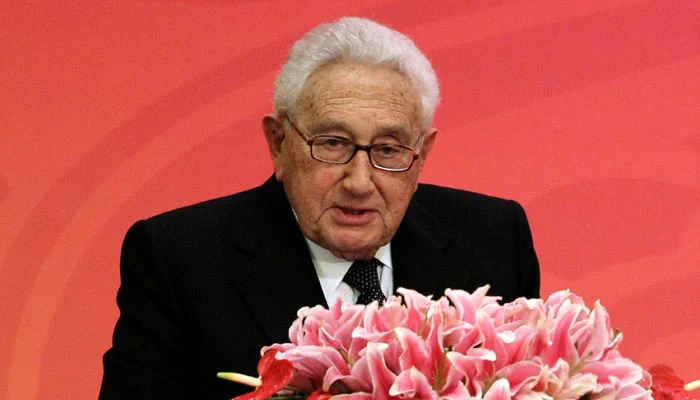Renowned diplomatic figure Henry Kissinger, who played pivotal roles as a national security adviser and secretary of state under two U.S. presidents, passed away at the age of 100. His death occurred at his Connecticut residence, as announced by his geopolitical consulting firm, Kissinger Associates Inc., without specifying the circumstances. A private family service is scheduled for his interment, with a later public memorial service planned in New York City.
Kissinger, active well beyond his centenary, continued to contribute to discussions on international affairs, including a surprise visit to Beijing in July 2023 for a meeting with Chinese President Xi Jinping. His influence during the 1970s, amid the Cold War, was marked by key contributions such as facilitating the U.S. diplomatic opening with China, engaging in landmark U.S.-Soviet arms control talks, fostering expanded ties between Israel and its Arab neighbors, and negotiating the Paris Peace Accords with North Vietnam.
Although his prominence in shaping U.S. foreign policy diminished after President Richard Nixon’s resignation in 1974, Kissinger maintained diplomatic influence during President Gerald Ford’s tenure. Despite widespread recognition for his brilliance and extensive experience, Kissinger faced criticism for supporting anti-communist dictatorships, particularly in Latin America, leading to accusations of war crimes. The controversy surrounding his Nobel Peace Prize in 1973 added to his complex legacy.
Born Heinz Alfred Kissinger in Germany in 1923, he emigrated to the United States in 1938 to escape the Nazi regime. Kissinger, who later anglicized his name to Henry, became a naturalized U.S. citizen in 1943 and served in the Army during World War II. A scholar at Harvard University for 17 years, Kissinger played various roles in government consulting, eventually becoming a key intermediary during peace negotiations in Vietnam in 1967.
Kissinger’s involvement in Nixon’s administration marked a significant chapter in U.S. history, including the process of “Vietnamisation.” His diplomatic efforts extended to the Arab-Israeli conflict and establishing relations with China. Despite successes, his tenure faced criticisms, such as the failure to persuade Israel and Egypt to agree on a second-stage disengagement in the Sinai and controversial remarks during the India-Pakistan War of 1971.
After leaving government service, Kissinger established a prominent consulting firm in New York, offering advice to global corporate leaders. His post-government career also included serving on company boards, participating in foreign policy and security forums, writing books, and offering commentary on international affairs. Despite these accomplishments, his legacy remains complex, with both admirers and critics shaping the narrative of his contributions to U.S. diplomacy.

